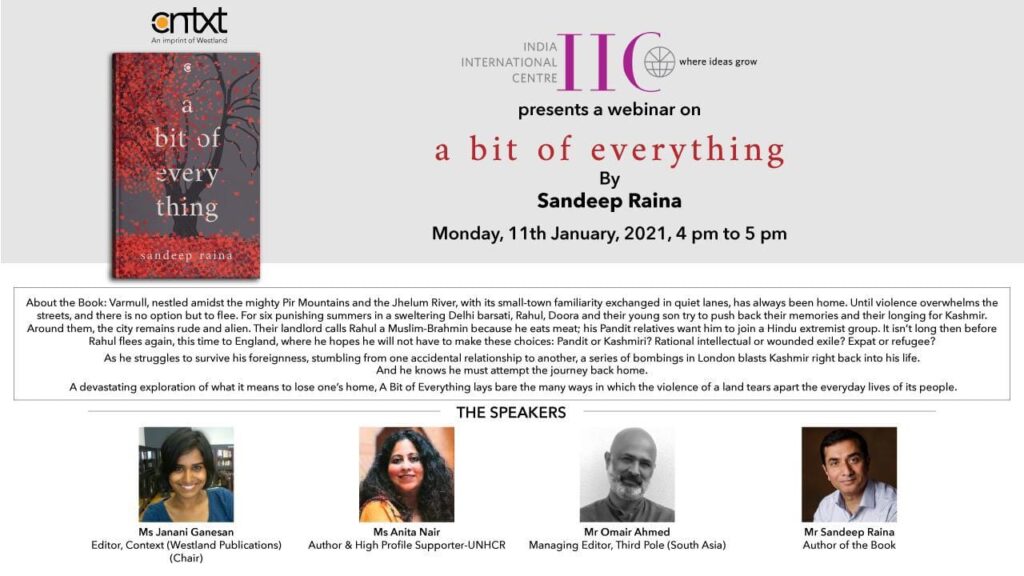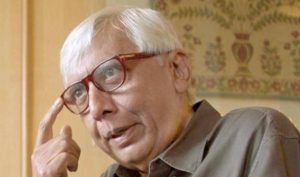 (Ritu Menon, founder, Women Unlimited is organising this fantastic literary festival in New Delhi. It is delicious programming. I was so looking forward to attending it but alas, I cannot. Thanks to the traffic diversions set up by the Delhi Police to allow the Art of Living three-day cultural festival to take place without a hitch on the Yamuna river bed. I am most disappointed. So those who can attend, must!)
(Ritu Menon, founder, Women Unlimited is organising this fantastic literary festival in New Delhi. It is delicious programming. I was so looking forward to attending it but alas, I cannot. Thanks to the traffic diversions set up by the Delhi Police to allow the Art of Living three-day cultural festival to take place without a hitch on the Yamuna river bed. I am most disappointed. So those who can attend, must!)
Palestine in India: A Writers’ Colloquium
March 11-13, 2016
Main Auditorium
India International Centre
Programme
Friday, March 11, 2016, 4:00 – 5:30 p.m.
Main Auditorium, IIC
Film Screening: The Time That Remains
(109 min; 2009; DVD; English subtitles)
Director: Elia Suleiman
Recipient of the Jury Grand Prize, Asia Pacific Screen Awards 2009; Audience Award & Silver Alhambra, Grenada Film Festival Cine del Sur 2010; ACCA Jury Prize & Award for Best Director, Mar del Plata Film Festival 2009
Elia Suleiman’s memoir of his family under Israeli occupation continues the mood of his earlier Divine Intervention (2002).
Friday, March 11, 2016, 6:30 p.m.
Main Auditorium, IIC
Memory & Imagination: A discussion on writing and resistance; on home and exile; on seeking, finding… with Mourid Barghouti and Sharif Elmusa.
Moderated by Ahdaf Soueif & Ritu Menon
Saturday, March 12, 2016, 3:00 – 4:30 p.m.
Main Auditorium, IIC
Counterfacts on the Ground: A discussion on living under occupation in Gaza and the West Bank, and on writing back to subvert suppression.
Laila El-Haddad and Adania Shibli talk to Raghu Karnad, and read from their work
Saturday, March 12, 2016, 4:30 – 5:30 p.m.
Main Auditorium, IIC
Palestine in Publishing: A discussion on the challenge of publishing and selling Palestinian writing in, and outside, Palestine.
Michel Moushabeck, Interlink, USA; Mahmoud Muna, Educational Bookshop, Jerusalem; Sudhanva Deshpande, Leftword Books, New Delhi & Ritu Menon, Women Unlimited, New Delhi exchange experiences and views, talk about difficulties and how they overcome them, intelligently!
Saturday, March 12, 2016, 6:30 – 8:00 p.m.
Main Auditorium, IIC
“The Blue Between Sky and Water”
Susan Abulhawa reads from her new book and discusses it with Githa Hariharan
Sunday, March 13, 2016, 2:30 – 4:00 p.m.
Main Auditorium, IIC
Poetry Reading: “My Country: Distant as My Heart from Me”
Mourid Barghouti and Tamim Albarghouti read their poetry in a mesmerising jugalbandhi
Sunday, March 13, 2016, 4:00 – 5:30 p.m.
Main Auditorium, IIC
“Stuck in Historical Amber?”: Susan Abulhawa and Sharif Elmusa speak about what it means to be “out of time, out of place”, to be never at home, and much else besides.
A free-wheeling conversation with well-known book critic, Sunil Sethi
Sunday, March 13, 2016, 6:30 – 8:00 p.m.
Main Auditorium, IIC
Double Bill!!
“Palestine: Nothing Makes Sense, Why Should I?”
Suad Amiry performs the tragi-comedy of her situation as a Palestinian under Occupation in the West Bank.
Book launch: My Damascus. Suad Amiry takes the reader by the hand and walks her through the city of her childhood, interleaving Damascus in history from the 1860s to the 2000s, with family history, of roughly the same period. A tour de force.
Ahdaf Soueif is the mistress of ceremonies.
11 March 2016









